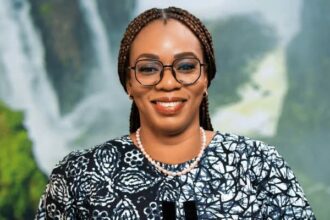Samuel Benjamin Bankman-Fried, also known as SBF, is an American businessman who was found guilty of fraud and associated offenses in November 2023.
He is the creator of the FTX digital currency platform and was once hailed as a prominent figure in the world of cryptocurrency.
Bankman-Fried was previously recognized as the 41st wealthiest individual in the United States according to the Forbes 400 list.
FTX, despite the public image of Bankman-Fried, faced significant issues that were concealed.
As evidence of potential fraudulent activities emerged in November 2022, depositors swiftly withdrew their assets, leading to the company’s downfall and subsequent bankruptcy.
| Born |
Samuel Benjamin Bankman-Fried
March 5, 1992 Stanford, California, U.S.
|
|---|---|
| Other names | SBF “The Crypto King” (prior to arrest and conviction) |
| Education | Massachusetts Institute of Technology (BS) |
| Occupation | Entrepreneur |
| Known for |
|
| Criminal status | Initial bail revoked: Convicted on all charges; sentenced to 25 years in prison |
| Parents |
|
| Relatives | Linda P. Fried (aunt) Gabriel Bankman-Fried (brother) |
| Criminal charge | |
Bankman-Fried’s troubles escalated when he was apprehended in the Bahamas on December 12, 2022, and extradited to the United States.
He faced a total of seven criminal charges, including wire fraud, commodities fraud, securities fraud, money laundering, and violations of campaign finance laws.
The legal proceedings against Bankman-Fried, known as United States v. Bankman-Fried, concluded on November 2, 2023, with his conviction on all seven counts of fraud, conspiracy, and money laundering.
Subsequently, on March 28, 2024, he received a 25-year prison sentence. Additionally, he was ordered to pay a hefty penalty of 11 billion dollars.
Early Life and Education
Bankman-Fried was born in Stanford, California on March 5, 1992. His parents, Barbara Fried and Joseph Bankman, are both professors at Stanford Law School.
His aunt, Linda P. Fried, serves as the dean of Columbia University Mailman School of Public Health.
Bankman-Fried’s younger brother, Gabriel Bankman-Fried, has held various positions including legislative assistant, Wall Street trader, and director of the non-profit organization Guarding Against Pandemics.
However, his brother came under scrutiny by federal investigators after it was discovered that a significant amount of money had been stolen from Alameda Research accounts.
Gabriel’s parents are currently being sued by the new owners of FTX to return assets that were given to them by Sam, valued at over $32 million.
Bankman-Fried attended Canada/USA Mathcamp during his high school years and completed his education at Crystal Springs Uplands School in Hillsborough, California.
He later graduated from the Massachusetts Institute of Technology in 2014, majoring in physics with a minor in mathematics.
During his time at MIT, he resided in a coeducational group house called Epsilon Theta.
Career
In the summer of 2013, Bankman-Fried completed an internship at Jane Street Capital, a proprietary trading firm, where he focused on trading international ETFs.
Following his graduation from MIT, he returned to Jane Street to work full-time.
In September 2017, Bankman-Fried left Jane Street and relocated to Berkeley, California.
There, he briefly served as the director of development at the Centre for Effective Altruism (CEA) from October to November 2017.
With financial support from Jaan Tallinn and Luke Ding, Bankman-Fried, along with Tara Hedley, co-founded Alameda Research, a quantitative trading firm.
By 2021, Bankman-Fried held around 90 percent ownership of Alameda Research.
In January 2018, he orchestrated an arbitrage trade involving up to $25 million per day to capitalize on the price difference of bitcoin between Japan and the United States.
After attending a cryptocurrency conference in Macau in late 2018, he relocated to Hong Kong.
In April 2019, Bankman-Fried established the FTX cryptocurrency derivatives exchange, which commenced operations the following month.
In September 2021, Bankman-Fried and the senior staff of FTX moved from Hong Kong to the Bahamas.
Bankman-Fried was recognized in the 2021 Forbes 30 Under 30 list, but was also featured in the Forbes 2023 Hall of Shame list.
On December 8, 2021, Bankman-Fried testified before the Committee on Financial Services, alongside other industry executives, regarding the regulation of the cryptocurrency industry.
On May 12, 2022, it was revealed that Emergent Fidelity Technologies Ltd., primarily owned by Bankman-Fried, had acquired 7.6 percent of Robinhood Markets stock.
In an affidavit submitted to the Eastern Caribbean Supreme Court in November 2022, Bankman-Fried and FTX co-founder Gary Wang disclosed that they had borrowed over $546 million from Alameda Research to finance the acquisition of Robinhood Markets stock by Emergent Fidelity Technologies. This statement was made prior to Bankman-Fried’s arrest.
In September 2022, it was reported that Bankman-Fried’s advisors had offered to assist in funding Elon Musk’s purchase of Twitter on his behalf.
As part of the lawsuit between Twitter and Musk during the acquisition process, messages revealed that Bankman-Fried was willing to commit up to $5 billion. However, no investment actually took place when Musk finalized the acquisition.
Bankman-Fried made significant investments, including $500 million in Anthropic and over $500 million in various venture capital firms.
Among these investments was $200 million in Sequoia Capital, which is also an investor in FTX.
Sequoia initially published a positive profile of Bankman-Fried but later removed it following the solvency crisis at FTX.
In July 2023, allegations surfaced that Bankman-Fried had contemplated the idea of “purchasing” the island country of Nauru as a potential bunker in the event of an apocalyptic scenario.
This project has been described as misguided and sometimes dystopian.
Bankman-Fried has publicly expressed his support for effective altruism, emphasizing his pursuit of “earning to give” as a form of altruistic career.
He has stated that his donations are not driven by personal interests but rather by data-proven projects that are most effective in aiding people, particularly in reducing existential risks such as nuclear war, pandemics, artificial intelligence, and threats to American democracy.
As a member of Giving What We Can, Bankman-Fried has donated approximately half of his Jane Street salary to charitable causes.
Despite signing the Giving Pledge in June 2022, his name was later removed from the list in December 2022 following his arrest.
Bankman-Fried founded Future Fund, which included renowned Scottish philosopher and author William MacAskill, a key figure in the effective altruism movement.
Following the collapse of FTX, all members of Future Fund resigned simultaneously.
By September 1, 2022, Future Fund had committed around $160 million to 110 non-profit organizations.
FTX’s relocation to the Bahamas was attributed to the favorable regulatory environment, with Bankman-Fried openly discussing the possibility of paying off the country’s $9 billion national debt.
In a private interview with Vox writer Kelsey Piper, Bankman-Fried admitted that his advocacy for crypto regulation was insincere and merely a public relations strategy.
He criticized regulators for exacerbating issues and failing to protect customers.
He also acknowledged that his stance on ethics was largely a facade, describing it as a superficial game played by privileged individuals in Western societies.
FTX Bankruptcy
In November 2022, Binance CEO Changpeng Zhao disclosed on Twitter the firm’s plan to divest its FTT holdings, FTX’s token, resulting in a surge of customer withdrawals from FTX that the platform could not meet.
Binance had received $529 million worth of FTT in 2021 as part of an equity sale from FTX.
Zhao’s tweet followed a CoinDesk report revealing that Alameda, Bankman-Fried’s trading firm, held a significant portion of FTT.
Bloomberg and TechCrunch noted that any sale by Binance would likely heavily impact FTT’s price due to its low trading volume.
Zhao’s announcement of the impending sale, along with disputes between Zhao and Bankman-Fried on Twitter, led to a drop in FTT and other cryptocurrencies’ prices.
Just before this, Zhao had criticized Bankman-Fried’s lobbying efforts.
On November 8, Zhao announced that Binance had entered a non-binding agreement to acquire FTX due to a liquidity crisis at FTX.
Zhao mentioned that Binance would conduct due diligence soon and advised all crypto exchanges to refrain from using tokens as collateral.
He also anticipated high volatility in FTT’s price in the upcoming days. Following the announcement, FTT plummeted by 80 percent.
The next day, The Wall Street Journal reported that Binance had opted not to proceed with the acquisition of FTX, citing reports of mishandling customer funds and ongoing investigations as reasons for the decision.
Amid the turmoil, Bankman-Fried was no longer a billionaire according to the Bloomberg Billionaires Index.
Shortly after, Bloomberg disclosed that the Securities and Exchange Commission and Commodity Futures Trading Commission were investigating FTX and its connections to Bankman-Fried’s other holdings.
On November 11, 2022, FTX, Alameda Research, and over 130 affiliated legal entities announced their bankruptcy.
According to undisclosed sources cited by Reuters, Bankman-Fried had transferred a minimum of $4 billion from FTX to Alameda Research earlier in 2022, without informing the companies’ insiders or the public. These sources claimed that the transferred funds included customer funds and were supposedly backed by FTT and shares in Robinhood.
The Wall Street Journal also cited an anonymous source who stated that Bankman-Fried had revealed that Alameda owed FTX approximately $10 billion, which was secured using customer funds held by FTX when the company had $16 billion in customer assets at that time.
Another set of anonymous sources cited by The Wall Street Journal claimed that Caroline Ellison, the Chief Executive of Alameda Research, informed employees that Bankman-Fried was aware that FTX had lent customers’ money to Alameda in order to assist with its liabilities.
Bankman-Fried stepped down as CEO of FTX on November 11, 2022, and was promptly succeeded by John J. Ray III.
Ray, who had previously chaired the effort to recover Enron assets for creditors through litigation against various banks in the Enron Bankruptcy case from 2004 to 2009, assumed the position.
On the same day, FTX and its affiliated entities filed for bankruptcy in Delaware.
The day after FTX’s bankruptcy declaration, Bankman-Fried was interviewed by the Royal Bahamas Police Force on November 12.
In a sworn declaration submitted to the bankruptcy court on November 17, Ray stated that, according to the firm’s records, Alameda Research had lent $1 billion to Bankman-Fried.
He further expressed, “Never in my career have I witnessed such a complete breakdown of corporate controls and such a total absence of reliable financial information.”
In the testimony Bankman-Fried had prepared to present in December 2022 to the House Financial Services Committee, he maintained that “[FTX] is solvent” but he was “pressured” by FTX general counsel and former partner at the Sullivan & Cromwell law firm, Ryne Miller, to declare bankruptcy.
He also implied that the managing team and the law firms managing the bankruptcy were using the Enron precedent in an effort to reap inordinately large amounts of fees from the process.
After his arrest and imprisonment, he did not testify in Congress; John J. Ray III testified instead.
Arrest and Charges
On the evening of December 12, 2022, Bankman-Fried was apprehended at his residence in New Providence, Bahamas by the Royal Bahamas Police Force.
It was anticipated that he would be sent back to the United States to stand trial. This arrest occurred just a day before Bankman-Fried was scheduled to testify before the U.S. House Committee on Financial Services.
However, Forbes managed to obtain and publish his prepared statement prior to his arrest.
Earlier that same day, the Southern District of New York had officially charged Bankman-Fried with several offenses, including wire fraud, wire fraud conspiracy, securities fraud, securities fraud conspiracy, and money laundering.
The Prime Minister of the Bahamas, Philip Davis, commented on the arrest, emphasizing the shared interest between the Bahamas and the United States in holding accountable any individuals associated with FTX who may have breached public trust and violated the law.
He further stated that while the United States pursues criminal charges against SBF individually, the Bahamas will continue its own investigations into the collapse of FTX.
Legal expert Braden Perry, a former senior trial lawyer at the Commodity Futures Trading Commission, expressed his opinion that a conviction on any of the charges could potentially lead to a lengthy prison sentence spanning years or even decades.
Following a ten-day detention at Fox Hill Prison in Nassau, Bankman-Fried agreed to be extradited from the Bahamas to the United States to face the charges against him.
He was granted release on a record-breaking $250 million bond, under the condition that he would reside at his parents’ residence in California.
On January 3, 2023, Bankman-Fried entered a plea of “not guilty” to charges of fraud and other offenses.
On February 1, 2023, Judge Lewis Kaplan, who was presiding over the case, imposed stricter bail conditions on Bankman-Fried.
The judge prohibited him from contacting current or former employees of FTX without the presence of attorneys.
This restriction was put in place because Judge Kaplan perceived Bankman-Fried’s contact with a potential witness as a significant risk of inappropriate communication with potential witnesses.
Additionally, the judge hinted that Bankman-Fried might be detained pending trial.
On February 23, 2023, four more criminal charges were announced against Bankman-Fried.
These charges primarily focused on his involvement in over 300 illegal political donations.
In March 2023, an indictment accused Bankman-Fried and others of directing and facilitating the transfer of at least $40 million in cryptocurrency to Chinese government officials. The purpose of this transfer was to unfreeze accounts belonging to Alameda Research.
In July, a campaign finance charge against Bankman-Fried was dropped by prosecutors due to treaty obligations with the Bahamas resulting from his extradition.
In August, Bankman-Fried faced another indictment related to illegal campaign finance.
He was accused of utilizing $100 million in stolen funds from FTX customers for campaign contributions during the 2022 U.S. elections.
Pre-trial detention
Before August 11, 2023, Bankman-Fried was released on bail and residing with his parents while abiding by court-imposed restrictions.
Prosecutors accused him of witness tampering on July 26, 2023, following his disclosure of personal writings of former Alameda Research CEO Caroline Ellison to a reporter.
Subsequently, on August 11, Judge Kaplan decided that witness tampering likely took place, leading to the revocation of Bankman-Fried’s bail.
He was then taken into custody at the Metropolitan Detention Center, Brooklyn, in handcuffs.
Bankman-Fried’s attorney stated on August 22, 2023, that his client was not receiving a vegan diet and was running low on medications for ADHD and depression.
He emphasized that Bankman-Fried could not adequately prepare for the trial while subsisting on bread, water, and peanut butter.
By November, reports indicated that he had access to a vegetarian diet, prescription drugs, and was engaging in the prison economy by purchasing mackerel packets from the commissary and using them to barter for services like a haircut from fellow inmates.
First Trial
The trial commenced on October 3, 2023, at the Manhattan federal court under the jurisdiction of Judge Lewis Kaplan.
Bankman-Fried was confronted with seven charges of fraud and conspiracy.
The Guardian encapsulated the trial as a debate on whether Bankman-Fried was a criminal genius in the crypto world or simply an unfortunate ‘math nerd’.
Allegations against Bankman-Fried included siphoning off billions from numerous individuals by redirecting customers’ funds from FTX to Alameda for various investments, loan settlements, property acquisitions, and political contributions.
Conversely, the defense painted a picture of a young and sincere entrepreneur who found himself overwhelmed.
They portrayed Bankman-Fried as someone who worked tirelessly for 12 to 22 hours daily, abstained from indulgences, and aimed to support further initiatives in pandemic prevention.
According to them, a series of errors from him and his inexperienced team, coupled with a severe market downturn and opposition from external entities, led to the downfall of his companies.
However, they vehemently denied any deliberate intent to engage in fraudulent activities.
During the trial, more than twelve witnesses testified for the prosecution, including three FTX executives – Caroline Ellison, Gary Wang, and Nishad Singh, who cooperated as part of plea agreements.
The defense heavily relied on the defendant’s testimony, with minor inputs from a risk management specialist and a lawyer from the Bahamas.
End of initial trial
Bankman-Fried was found guilty on all seven charges by the jury, concluding the trial on November 2, 2023. The sentencing hearing was then scheduled for March 28, 2024.
Experts in federal criminal court sentencing speculated on the potential duration of imprisonment that would be imposed.
On March 28, 2024, the court handed down a 25-year prison sentence to Bankman-Fried.
However, due to the provisions of the First Step Act, he may serve only 12.5 years.
Furthermore, the court mandated that the defendant pay a forfeiture amount of $11.02 billion for his involvement in a series of fraudulent activities against customers and investors.
Second Trial
A subsequent trial, involving five charges such as bank fraud and bribery, was initially planned for early March 2024.
These allegations were filed by federal prosecutors following Bankman-Fried’s extradition from the Bahamas in December 2022.
Bankman-Fried had requested the dismissal of these charges, arguing that they were not included in the extradition agreement with Bahamian authorities, or alternatively, he proposed that they be addressed in a separate trial.
On December 30, 2023, prosecutors declared that they would not pursue a second trial, citing that the advantages of doing so would be outweighed by the “significant public interest” in promptly resolving the case.
Additionally, a second trial would not impact the potential prison sentence Bankman-Fried could receive based on federal sentencing guidelines.
Personal Life
Bankman-Fried, a vegan, was brought up in a Jewish household. In mid-2021, reports indicated that he resided in a five-bedroom Bahamian penthouse with around ten roommates, a property purchased by FTX co-CEO Ryan Salame.
Following FTX’s downfall, the penthouse was listed for sale at nearly $40 million.
Alameda Research CEO Caroline Ellison was in a romantic relationship with Bankman-Fried until their breakup on April 15, 2022.
During her court testimony in October 2023, she alleged that his hairstyle and attire were carefully crafted to maintain a specific image.
She claimed that Bankman-Fried believed his appearance played a crucial role in his success at Jane Street and was a significant aspect of FTX’s branding.
Bankman-Fried once engaged in playing League of Legends while negotiating an investment with Sequoia Capital.
An article in the Financial Times described his performance in the game as “average-to-bad.”
Throughout the recent events, Bankman-Fried’s parents have supported him, affirming his innocence in a letter from December 2022.
His mother, Barbara Fried, criticized the prosecution and bankruptcy team’s actions as “McCarthyite” and accused them of a relentless pursuit of destruction fueled by public gullibility.
Following Bankman-Fried’s incarceration, his parents have been visiting him at the Brooklyn jail every Tuesday, with his mother advocating for leniency in sentencing due to the perceived dangers he faces in prison.
Notes
- In the meantime, Bankman-Fried reportedly had spent approximately $135 million on naming rights for Miami Heat’s basketball arena and an estimated $30 million on a single Super Bowl ad.
Net Worth
Bankman-Fried rode a boom in the values of bitcoin and other digital assets to a net worth of $26 billion, according to Forbes magazine, before he turned 30.

























